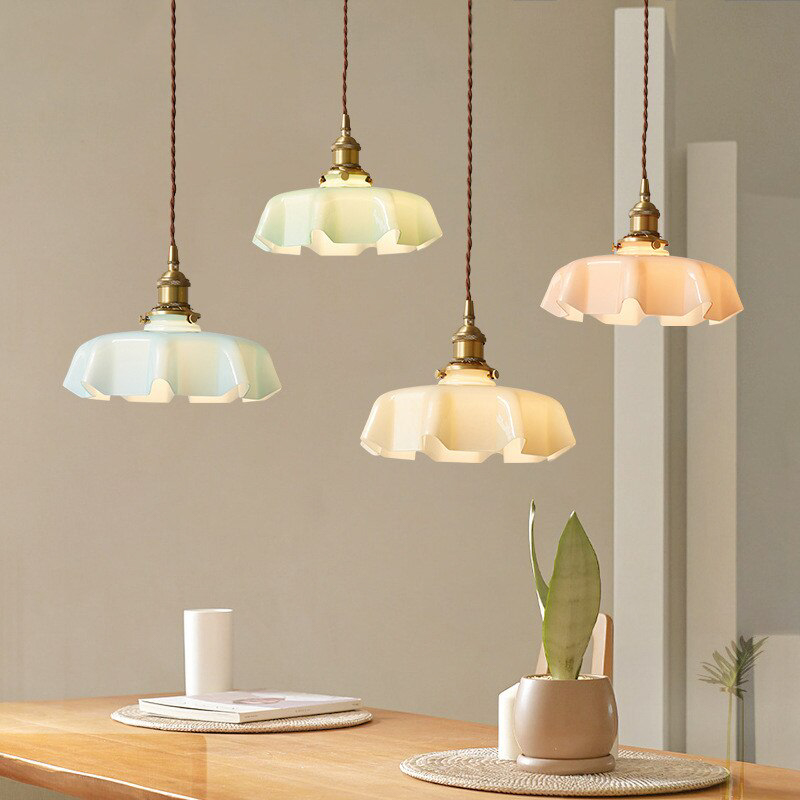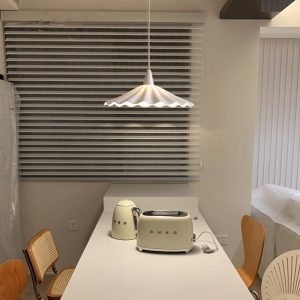
Boost Your Study Space: Ceiling Light Upgrade
Having a well-lit study space is essential for productivity and comfort. Whether you are a student or someone who works from home, having proper lighting in your study area can make a significant difference in your ability to focus and concentrate. In this article, we will explore the benefits of upgrading your study space lighting, factors to consider before making the upgrade, different types of ceiling lights suitable for study spaces, how to choose the right ceiling light for your study space, DIY options for upgrading your lighting, professional options, maintenance tips, cost-effective ways to upgrade, and why you should consider upgrading your study space lighting.mwamoi
Benefits of Upgrading Your Study Space Lighting
Upgrading your study space lighting can have numerous benefits. Firstly, proper lighting can improve productivity. Studies have shown that individuals who work or study in well-lit environments are more focused and efficient in their tasks. Good lighting can reduce eye strain and fatigue, allowing you to work for longer periods without feeling tired or uncomfortable.
Additionally, upgrading your study space lighting can enhance your overall mood and well-being. Natural light is known to boost serotonin levels in the brain, which can improve mood and reduce stress. By incorporating natural light or using artificial lighting that mimics natural light, you can create a more pleasant and inviting study environment.
Factors to Consider Before Upgrading Your Study Space Lighting
Before upgrading your study space lighting, there are several factors you should consider. Firstly, assess the size of your study area. A smaller space may require less intense lighting, while a larger space may need multiple light sources to ensure adequate illumination.
Next, consider the amount of natural light that enters your study area. If you have ample natural light during the day, you may not need as many artificial lights. However, if your study space lacks natural light or if you often work during the evening or night, you will need to rely more on artificial lighting.
Lastly, consider your personal preferences and the type of activities you will be doing in your study space. Some individuals prefer brighter, cooler lighting for tasks that require focus and concentration, while others may prefer warmer, softer lighting for a more relaxed atmosphere.
Types of Ceiling Lights Suitable for Study Spaces
There are several types of ceiling lights that are suitable for study spaces. One popular option is recessed lights, which are installed into the ceiling and provide a clean and modern look. Recessed lights are great for evenly illuminating a space and can be adjusted to direct light where it is needed most.
Another option is pendant lights, which hang from the ceiling and provide a more decorative and stylish lighting solution. Pendant lights come in various designs and can add a touch of elegance to your study space. They are particularly useful for providing focused lighting over a specific area, such as a desk or reading nook.
Track lights are another suitable option for study spaces. These lights consist of multiple adjustable fixtures mounted on a track, allowing you to direct light exactly where you need it. Track lights are versatile and can be used to highlight specific areas or objects in your study space.
How to Choose the Right Ceiling Light for Your Study Space
When choosing the right ceiling light for your study space, there are several factors to consider. Firstly, consider the size of your study area. A smaller space may only require one or two light fixtures, while a larger space may need multiple fixtures or a combination of different types of lights.
Next, think about the type of activities you will be doing in your study space. If you primarily use your study area for reading or computer work, you may want to choose a light that provides focused and adjustable lighting. On the other hand, if you use your study space for various activities such as crafting or drawing, you may want to opt for a combination of different types of lights to provide both ambient and task lighting.
It is also important to consider the color temperature of the light. Cooler temperatures, around 5000K, are often preferred for tasks that require focus and concentration, as they mimic natural daylight. Warmer temperatures, around 2700K to 3000K, create a more relaxed and cozy atmosphere.
DIY Ceiling Light Upgrade for Study Space

If you are a handy person and enjoy DIY projects, upgrading your study space lighting can be a fun and rewarding task. Here is a step-by-step guide on how to upgrade your study space lighting on your own:
1. Start by assessing your study space and determining the type and number of lights you will need. Consider the factors mentioned earlier, such as room size and activities performed in the space.
2. Research different types of ceiling lights that are suitable for study spaces and choose the one that best fits your needs and preferences.
3. Purchase the necessary tools and materials for the project. This may include light fixtures, bulbs, wiring, switches, and any other accessories needed for installation.
4. Turn off the power to the room at the circuit breaker before starting any electrical work. This will ensure your safety during the installation process.
5. Remove any existing light fixtures from the ceiling, following the manufacturer’s instructions.
6. Install the new light fixtures according to the manufacturer’s instructions. This may involve wiring the fixtures, attaching them to the ceiling, and securing them in place.
7. Once the fixtures are installed, turn on the power at the circuit breaker and test the lights to ensure they are working properly.
8. Adjust the direction and intensity of the lights as needed to achieve optimal lighting in your study space.
Professional Ceiling Light Upgrade for Study Space
If you are not comfortable with DIY projects or if you prefer a more professional touch, hiring a professional to upgrade your study space lighting is a great option. Here are some benefits of hiring a professional:
1. Expertise and experience: Professionals have the knowledge and experience to assess your study space and recommend the best lighting solutions based on your needs and preferences.
2. Safety: Electrical work can be dangerous if not done correctly. Hiring a professional ensures that the installation is done safely and up to code.
3. Time-saving: Upgrading your study space lighting can be time-consuming, especially if you are not familiar with the process. Hiring a professional allows you to focus on other tasks while they take care of the installation.
To find a reliable and experienced professional, ask for recommendations from friends or family who have had similar work done. You can also search online for local electricians or lighting specialists and read reviews from previous customers.
Maintenance Tips for Your Upgraded Study Space Lighting
Proper maintenance is important for the longevity and performance of your upgraded study space lighting. Here are some maintenance tips to keep in mind:
1. Regularly clean the fixtures to remove dust and dirt that can accumulate over time. Use a soft cloth or duster to gently wipe down the fixtures.
2. Replace bulbs as needed. Over time, bulbs may become dim or burn out completely. Replace them with new bulbs of the same type and wattage.
3. Check for any loose or damaged wiring. If you notice any issues with the wiring, such as exposed wires or loose connections, it is important to have them repaired by a professional to prevent any electrical hazards.
4. Consider using LED bulbs, which are energy-efficient and have a longer lifespan compared to traditional incandescent bulbs. LED bulbs also produce less heat, reducing the risk of overheating or fire hazards.
Cost-effective Ways to Upgrade Your Study Space Lighting
If you are on a budget, there are several cost-effective ways to upgrade your study space lighting:
1. Use LED bulbs: LED bulbs are more energy-efficient and have a longer lifespan compared to traditional incandescent bulbs. While they may have a higher upfront cost, they can save you money in the long run due to their energy efficiency and longevity.
2. Repurpose existing fixtures: Instead of purchasing new light fixtures, consider repurposing existing fixtures by giving them a fresh coat of paint or replacing the shades. This can give your study space a new look without breaking the bank.
3. Use task lighting: Instead of relying solely on overhead lighting, incorporate task lighting such as desk lamps or floor lamps. Task lighting can provide focused illumination where it is needed most, reducing the need for additional ceiling lights.
4. Shop for deals: Look for sales or discounts on lighting fixtures and bulbs. Many home improvement stores offer promotions or clearance sales where you can find affordable options for upgrading your study space lighting.
Why You Should Upgrade Your Study Space Lighting
In conclusion, upgrading your study space lighting can have numerous benefits, including improved productivity, reduced eye strain, enhanced mood, and overall comfort. By considering factors such as room size, natural light, and personal preferences, you can choose the right ceiling light for your study space. Whether you opt for a DIY project or hire a professional, proper maintenance is essential for the longevity and performance of your upgraded lighting. With cost-effective options available, there is no reason not to upgrade your study space lighting for a more productive and enjoyable study environment.


